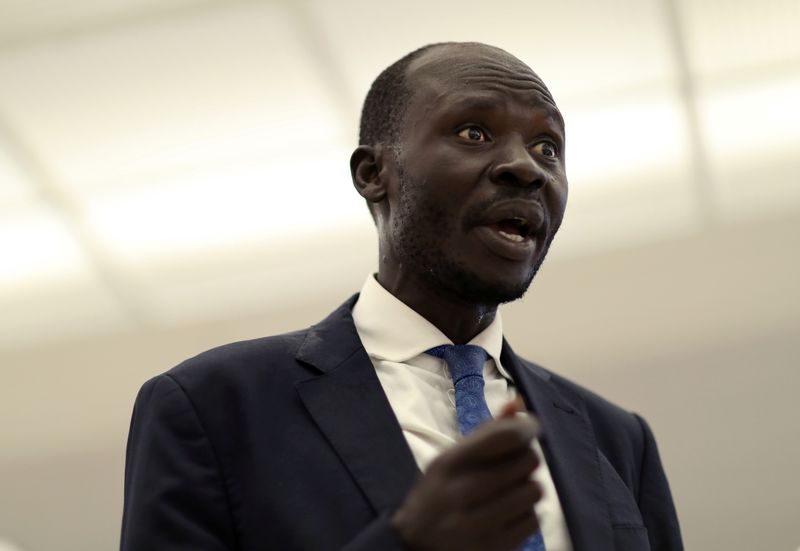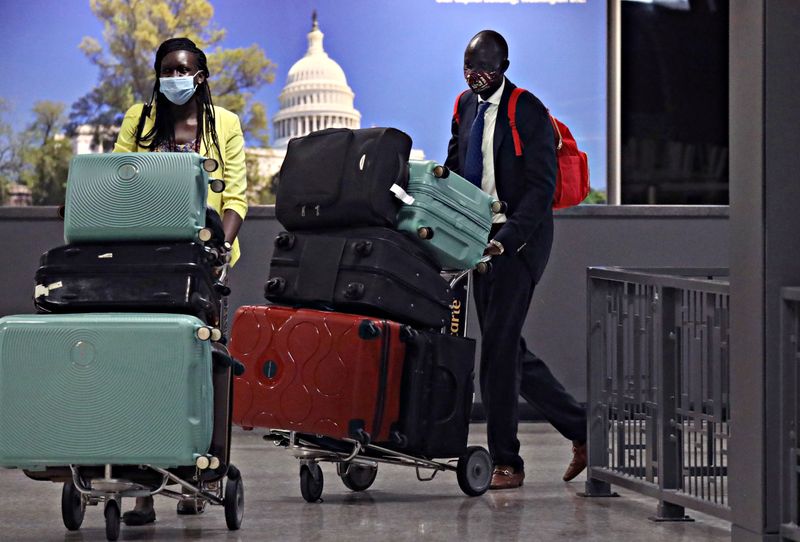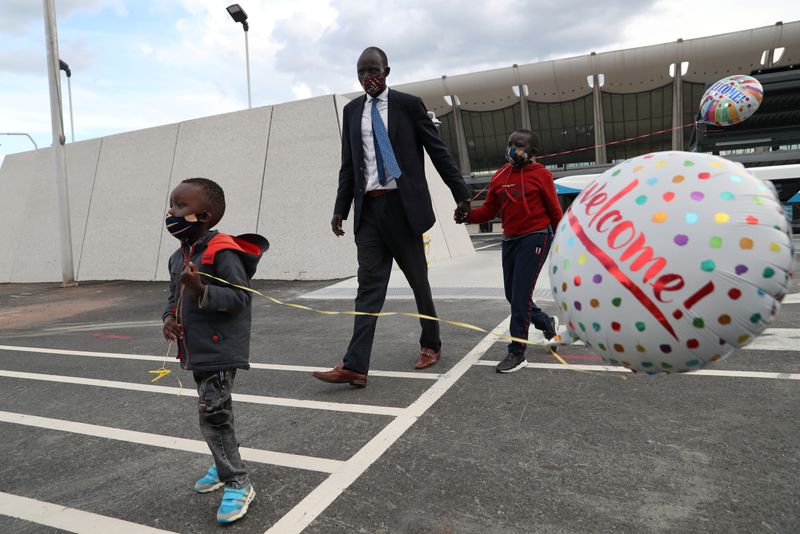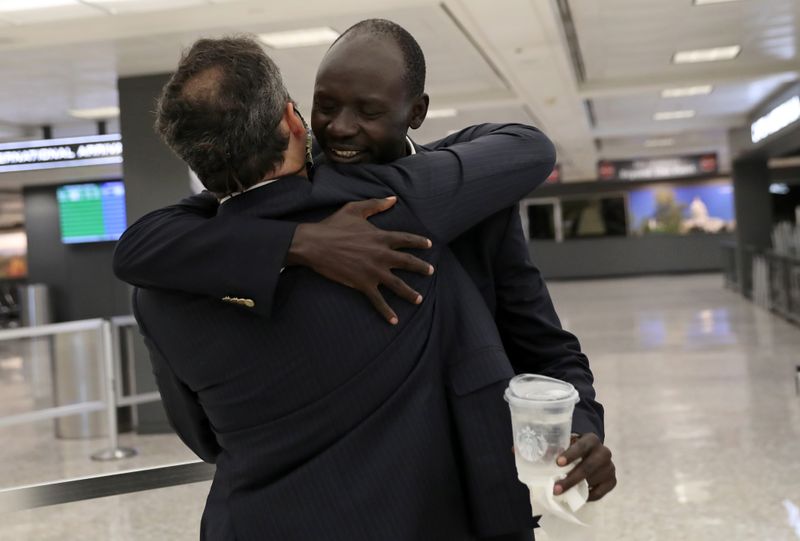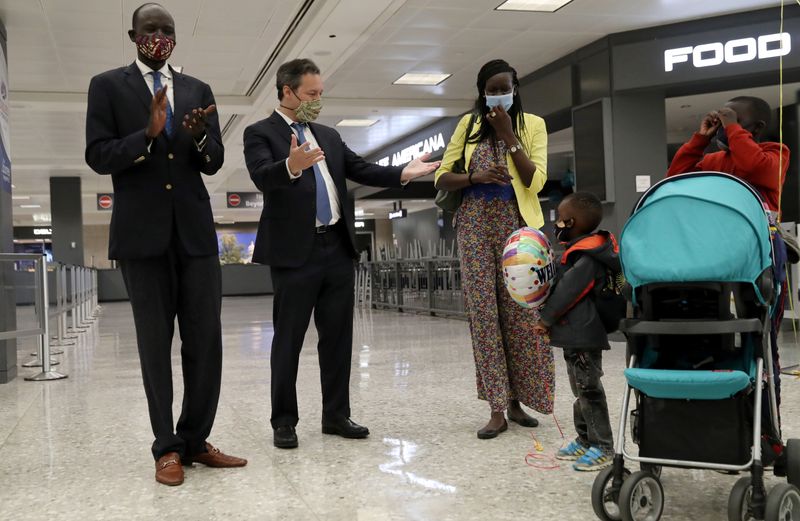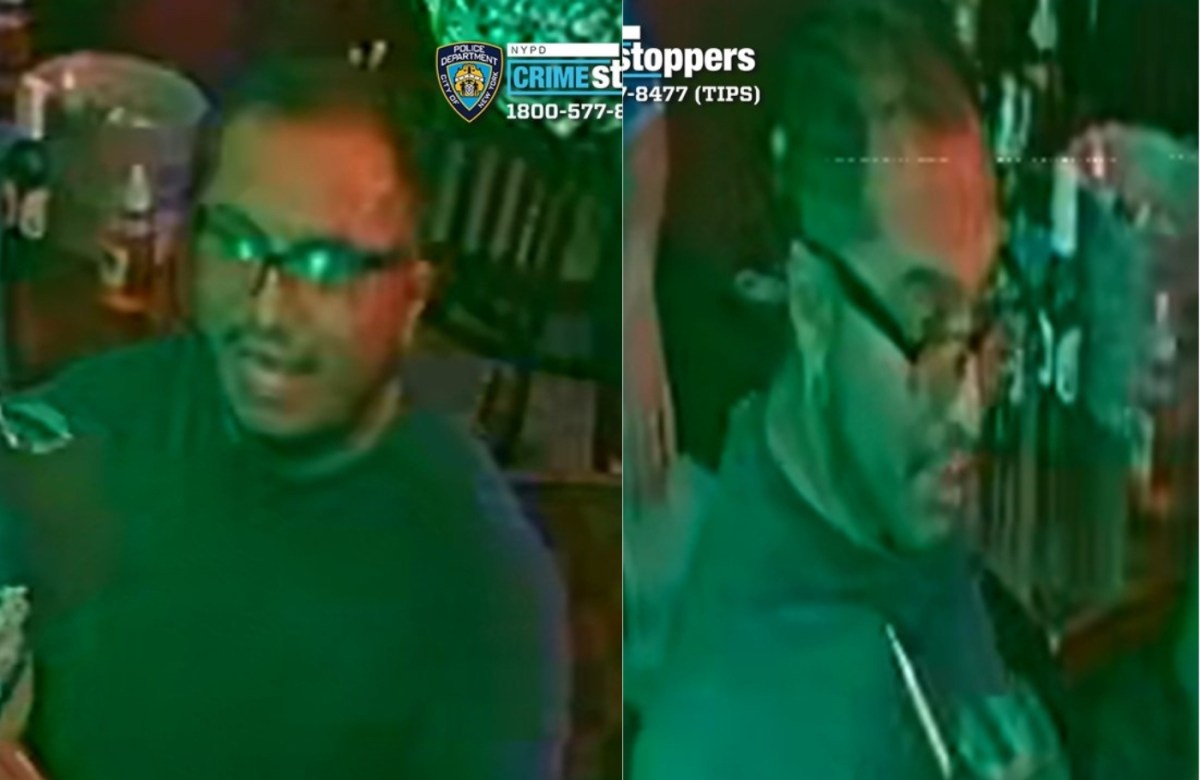WASHINGTON (Reuters) – A prominent South Sudanese economist fled to the United States on Thursday and accused South Sudan’s President Salva Kiir of ordering a hit squad to kill or kidnap him in Kenya, an allegation immediately denied by the Juba government.
Peter Biar Ajak landed at Dulles Airport outside Washington with his wife and three small children after traveling from Nairobi. He told Reuters that top South Sudanese officials whom he declined to identify had warned him that Kiir had ordered a team to abduct or murder him in the Kenyan capital.
Ajak said SUVs with South Sudanese plates followed him in Nairobi, where he moved in February after about 18 months in prison in South Sudan. He was pardoned in January of charges he had disturbed the peace by speaking to the foreign media.
“About five weeks ago I received information that the president of South Sudan, Salva Kiir, had ordered the National Security Service… to either kill me in Nairobi or abduct me and bring me back to South Sudan,” Ajak told Reuters.
Asked why Kiir may have wished to have him killed or captured, Ajak said he believed South Sudan’s president felt threatened by his efforts to expose corruption and promote democracy in the country, which gained independence in 2011 and was mired in civil war from 2013 to 2018.
Ajak founded the South Sudan Young Leaders Forum, a non-profit group that has published scathing criticisms of the South Sudanese leadership and has sought to rally the country’s young people to demand better governance and an end to violence.
South Sudan’s government flatly denied Ajak’s allegation that Kiir sent a hit squad after him in Nairobi.
“That is complete nonsense. He was here when he was pardoned by the president and allowed to go abroad. He should not associate anything that comes his way with the government of South Sudan,” Ateny Wek Ateny, South Sudan’s presidential press secretary, told Reuters in Juba.
“The government of South Sudan does not attempt, or even need, to kill anybody outside the country,” Ateny added.
Reuters could not independently verify Ajak’s claims that Kiir ordered a squad to kill or capture him.
Ajak’s representative, human rights lawyer Jared Genser, provided a photograph of a white SUV with South Sudanese plates which he said had followed Ajak in Nairobi. Genser said the plates were not in South Sudan’s car registry and were typical of those used by the government’s National Security Service.
Reuters also reviewed emails from June that showed the U.S. State Department regarded Ajak’s allegation as sufficiently credible to grant him a U.S. visa.
“The circumstances of Peter’s case are clear,” said one U.S. official in an email.
A State Department spokesman who declined to be identified said the agency was aware of Ajak’s safe arrival and referred all questions about his immigration status to the Department of Homeland Security.
South Sudan plunged into civil war in 2013 after a political disagreement between Kiir and his deputy Riek Machar deteriorated into a military confrontation.
Ajak has been publicly critical of the way Kiir and Machar approached peace talks to end the civil war. He said South Sudan needed to hold elections but said it was too soon to say whether he might run.
In 2018, South Sudan ended five years of civil war that killed an estimated 400,000 people, caused a famine and created a massive refugee crisis, but Kiir and Machar’s disagreements have kept the peace process from being concluded.
In an opinion piece published in the Wall Street Journal on Thursday, Ajak accused Kiir of “cruelty” and said he had “exploited the chaos to delay elections, first from 2015 to 2018, and then to 2021. They must not be delayed again.”
While thanking President Donald Trump for giving him refuge, he also called on the United States to impose additional targeted sanctions against South Sudanese officials who he said had committed atrocities.
The White House and the State Department did not immediately responded to requests for comment on the call for more sanctions.
(Reporting by Arshad Mohammed and Julio-Cesar Chavez; Additional reporting by Denis Dumo in Juba; Editing by Rosalba O’Brien)

